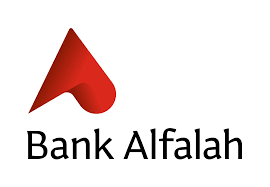Bank Alfalah Limited (BAFL) has announced its financial results for the half-year ended June 30, 2025, reporting a significant decline in profit after tax (PAT) by 25.8% year-on-year (YoY) to Rs15.27 billion, compared to Rs20.60 billion in the same period of 2024. Consequently, earnings per share (EPS) dropped by 25.9% to Rs9.68, down from Rs13.06 last year.
Despite the decline in profitability, the bank posted positive figures in several key areas. Net Mark-up / Interest Income (NII) rose by 8.0% YoY to Rs67.58 billion, driven by a reduction in interest expenses (-38.3%) outpacing the decline in interest earned (-27.1%). Non-Mark-up / Interest Income (NMI) also saw robust growth, increasing by 18.4% to Rs24.05 billion, primarily due to a 160.7% surge in gains on securities, which reached Rs8.39 billion, and a 25.5% rise in dividend income to Rs1.46 billion.
Foreign exchange income remained stable at Rs5.29 billion, marking a slight increase of 0.9%, while fee and commission income saw a significant drop of 23.7% to Rs7.65 billion. The bank also reported a loss of Rs388.6 million from derivatives, reversing the previous year’s gain of Rs1.37 billion. However, other income surged by 360.8% YoY to Rs874 million.
Total income for H1 2025 amounted to Rs91.64 billion, a 10.6% increase from Rs82.86 billion in H1 2024. However, higher expenses hindered profitability, with non-mark-up / interest expenses rising by 39.4% to Rs56.81 billion, largely due to a 41.3% increase in operating expenses to Rs55.98 billion.
Despite these challenges, provisions for credit losses decreased by 31.4% to Rs896.6 million, offering some relief. Taxation also decreased by 7.6% YoY to Rs18.66 billion.
Profit before tax (PBT) stood at Rs33.93 billion, a 16.8% decline from Rs40.80 billion in the same period last year. Bank Alfalah’s growth in total income and market-related gains was overshadowed by rising costs and a significant decline in core fee-based income, which negatively impacted the bottom line.
In a positive move for shareholders, the bank declared an interim cash dividend of Rs2.50 per share (25%).




